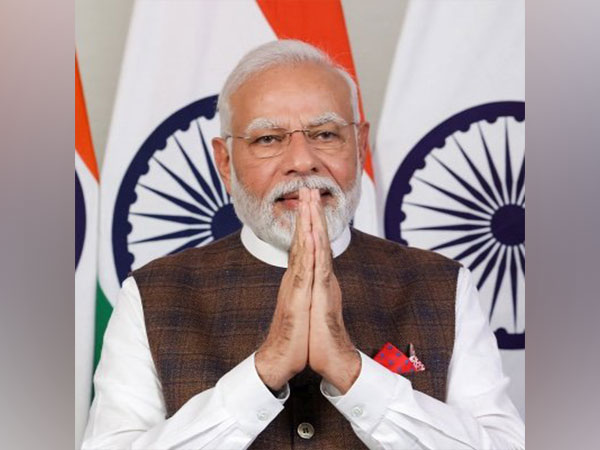G20 success makes PM Modi “clear winner”: Jim O’ Neill
Jim O’ Neill, the British economist — who is famously known for coining the term BRICS — has stated that currently, G20 is the only body that can provide solutions to global problems, and the success of the summit makes Prime Minister Narendra Modi the “clear winner” in this season of summitry with Beijing, Project Syndicate reported.

- Country:
- United States
Jim O' Neill, the British economist — who is famously known for coining the term BRICS — has stated that currently, G20 is the only body that can provide solutions to global problems, and the success of the summit makes Prime Minister Narendra Modi the "clear winner" in this season of summitry with Beijing, Project Syndicate reported. In his piece in Project Syndicate, O' Neill pointed out that neither BRICS nor G7 has the credibility or the capacity to tackle global challenges
He added that the joint declaration that emerged from last week's summit in New Delhi offered further confirmation that the G20 is the only body with the scope and legitimacy to offer truly global solutions to global problems. Despite obvious challenges – such as the considerable differences in how member states operate – they managed to reassert the G20's relevance after a lengthy period in which its role had been called into question, he added.
"Alternative groupings such as the G7 and the new expanded BRICS look like sideshows in comparison," O' Neill stated. He also applauded the role of India and the US in pushing through the final communique.
"The New Delhi Declaration could be the first step in a stronger concerted effort to address global issues like climate change, the need for a revamped World Bank, infectious disease control, economic stability, the war in Ukraine, and other matters. Though this agenda was agreed in the absence of Russian President Vladimir Putin and Chinese President Xi Jinping, the Russian and Chinese representatives who did attend would not have signed on to anything without having cleared it with their respective governments," he stated in Project Syndicate. The author further stated that the Chinese President's absence at the G20 undermined the significance of the recent BRICS meeting.
As matters stand, the success of the G20 meeting makes PM Modi the clear winner in this season of summitry. Perceptions matter, and right now he looks more like a visionary statesman than Xi does, he added in the piece. O' Neill further stated that with the inclusion of African Union in G20 — making it G21 — the G20 achieved another subtle, but important step.
This breakthrough gives PM Modi a clear diplomatic victory, allowing him to burnish his image as a champion of the Global South. It also further underscores the seemingly random nature of the BRICS' own expansion, which includes Egypt and Ethiopia, but not other, more important African countries, such as Nigeria. The big question now is whether a permanent seat at the table will make the African Union itself a more effective body, he stated. The author also differed on the perception that "G7 is still a highly effective body compared to the G20", as evidenced by the solidarity it has shown on issues like Russia's war in Ukraine.
He believes that although the G20 communique's language on the war did not rise to the level that Ukraine's leaders would prefer, it was robust enough to send a "clear message" to others who may want to violate internationally recognized borders. It also conveys to President Putin that he should not expect even superficial backing from some of his supposed BRICS friends. And, of course, the declaration does not inhibit Western countries or individual leaders from condemning the war in more forceful terms, O' Neill stated.
The author added that the voice that matters when it comes to Ukraine is not the G7 but NATO – just as the G20 is the collective voice that truly matters when it comes to the global economy, climate change, public health, and many other issues. "As much as G7 leaders would like to think that they are still a major influence in global affairs, the reality suggests otherwise. The big takeaway from the New Delhi summit is that you cannot possibly deal with big global challenges unless you include the major emerging powers," he added.
On the claims that G20 is too large to be effective, the author stated in his piece at Project Syndicate, that if eurozone member states really wanted to demonstrate their belief in the permanence of their joint project, I observed, they would send just one delegate to international gatherings like the G20, rather than retaining their individual representatives. That made the group less unwieldy and set a powerful precedent. If other blocs, including the BRICS, did the same, the result would be a global-governance grouping that is truly fit for purpose, he added. (ANI)
(This story has not been edited by Devdiscourse staff and is auto-generated from a syndicated feed.)
ALSO READ
Success Amidst Challenges: Egypt's Suez Canal Expansion
China's Expanding Detention Facilities: A Deeper Dive into Xi Jinping's Anti-Corruption Crusade
Fatal Shark Encounter Shocks Egyptian Resort
Sealmatic India Expands Horizons with Strategic Entry into Egypt
UFlex Invests $200 Million in Egypt for Strategic Expansion










